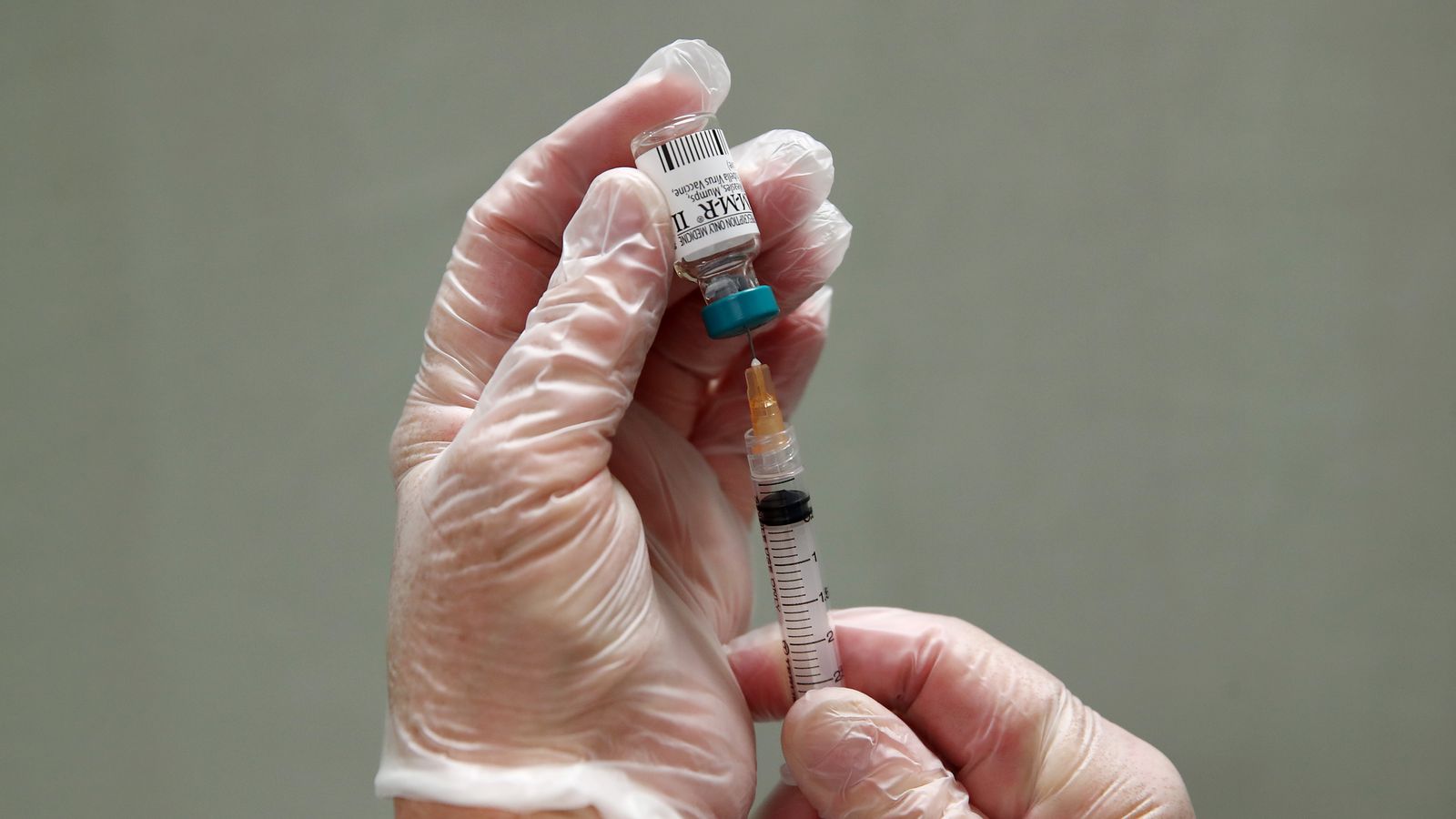There is now an “imminent threat” of measles spreading in every region of the world, the World Health Organisation and the US public health agency has said.
In a joint report, the health organisations said there had been a fall in vaccines against measles and less surveillance of the disease during the COVID pandemic.
Measles is one of the most contagious human viruses but is almost entirely preventable through vaccination, though it requires 95% vaccine coverage to prevent outbreaks.
A record high of nearly 40 million children missed a dose last year because of hurdles created by the pandemic, according to the report by the WHO and the US Centers for Disease Control and Prevention.
This has left millions of children susceptible to the disease.
“We are at a crossroads,” Patrick O’Connor, the WHO’s measles lead, said.
“It is going to be a very challenging 12-24 months trying to mitigate this.”
Although cases have not yet gone up significantly compared to previous years, now is the time to act, he said.
Lingering social distancing measures and the cyclical nature of measles may explain why there has not been a jump in cases, Mr O’Connor said.
This could change quickly, however, as it is a highly contagious disease.
Read more:
China announces first coronavirus death in six months
Fungal infections ‘increased significantly’ during pandemic
There were about nine million measles infections and 128,000 deaths worldwide last year, officials said.
In February, health officials in England warned that vaccine rates had dropped to their lowest level in a decade.
Measles is normally passed through direct contact and through the air by coughing and sneezing.
Unvaccinated young children are at the highest risk of measles and its complications.
It can cause pneumonia, encephalitis (brain inflammation) and damage to the immune system, which leaves children more susceptible to other infections.
Measles causes symptoms including fever, muscle pain and a skin rash on the face and upper neck and can sometimes be fatal.
More than 95% of deaths occur in developing countries, mostly in Africa and Asia.
There is no specific treatment for measles, but the two-dose vaccine is about 97% effective in preventing severe illness and death.
